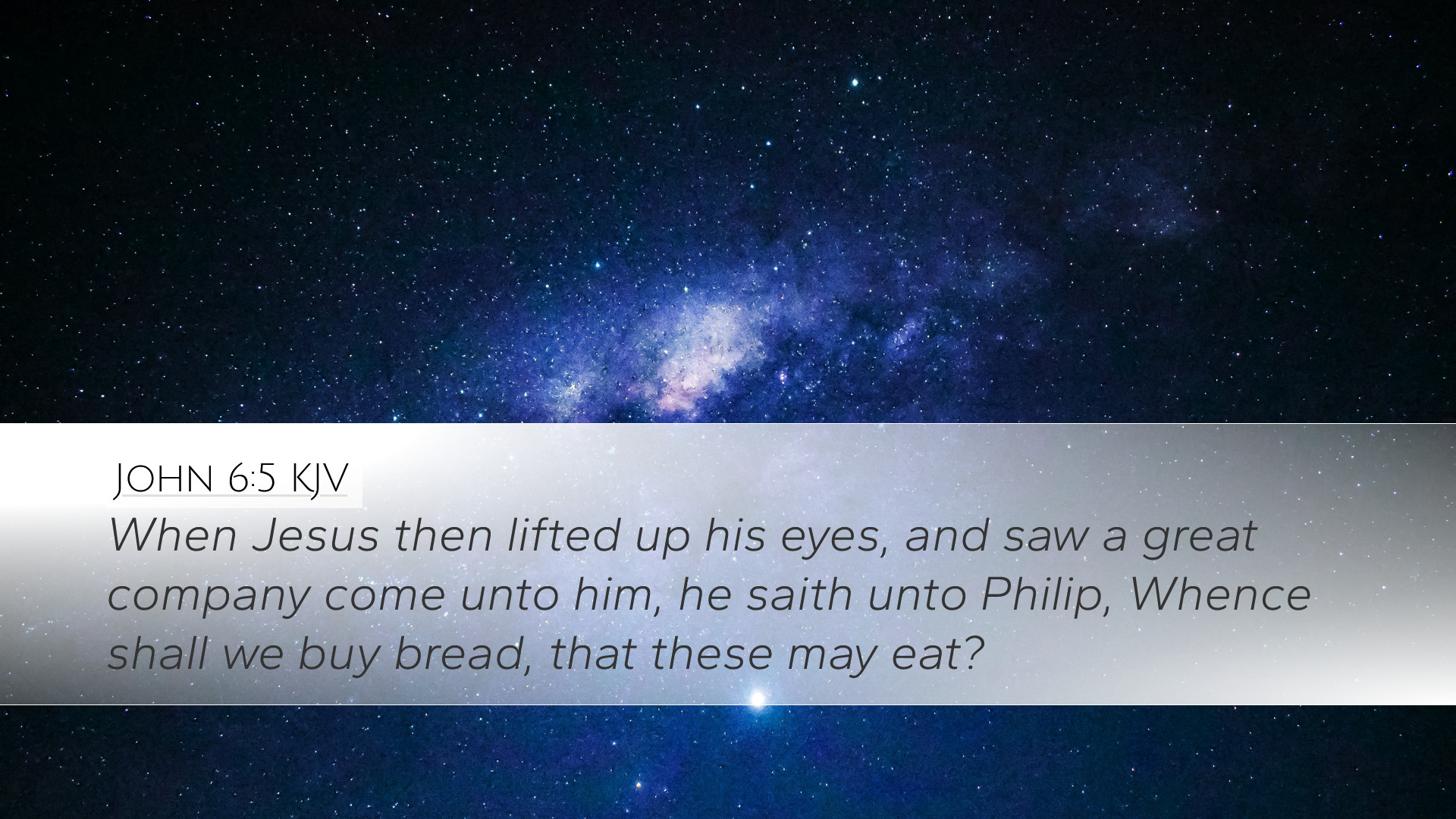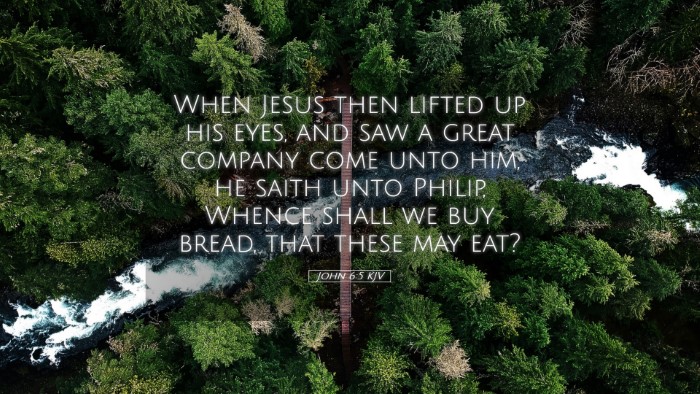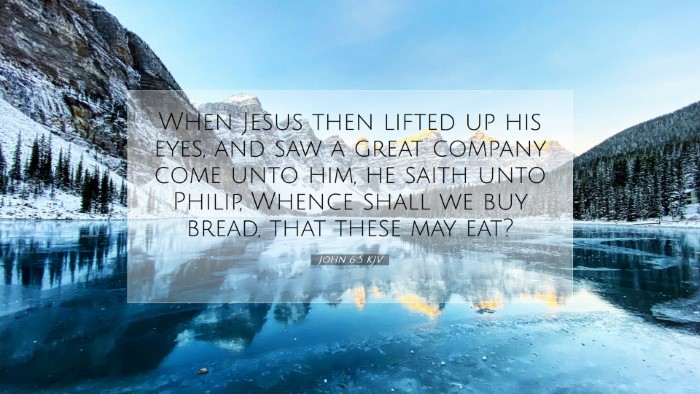Commentary on John 6:5
John 6:5 states: "When Jesus lifted up his eyes, and saw a great company come unto him, he saith unto Philip, Whence shall we buy bread, that these may eat?" This verse marks a pivotal moment in the Gospel of John, illustrating not only the compassionate nature of Christ but also setting the stage for one of the most profound miracles—the feeding of the five thousand. The following commentary draws from the insights of renowned theologians and scholars, providing a comprehensive examination of this scripture.
Context and Significance
The context of John 6 reveals Jesus' ministry of teaching and miracles, where He increasingly reveals His identity and mission. The immense crowd following Him exemplifies the magnetic pull of His message and miracles. This passage prepares the reader for understanding both the physical and spiritual nourishment that Jesus provides.
Matthew Henry's Insights
Matthew Henry focuses on the pastoral aspect of Jesus' approach to the multitude. He highlights that Jesus, “lifting up His eyes,” indicates His awareness and attention to the needs of those around Him. It is not merely an observation, but an invitation to partake in a divine discourse of provision.
Henry elaborates on the specific mention of Philip, noting that Jesus is testing him, a theme consistent throughout scripture where God often puts His servants through tests to reveal their faith and reliance upon Him. The question "Whence shall we buy bread?" is a strategic prompt that guides Philip toward recognizing the inadequacy of human resources in comparison to divine provision.
Albert Barnes' Commentary
Albert Barnes emphasizes the importance of Jesus’ inquiry as a means of deepening Philip's understanding of Jesus’ divine authority. He points out that the challenge posed by Jesus was not rooted in doubt; rather, it served as a means to demonstrate the necessity of faith. Barnes articulates that Jesus already knew what He would do, illustrating both His omniscience and His pedagogical method of bringing His disciples into deeper truth.
Furthermore, Barnes discusses the crowd's motivations and expectations. The crowd, filled with curiosity and need, represents humanity's hunger for both physical and spiritual sustenance. Their presence begs the question of how Jesus would respond to such need—an echo of the prophetic themes of provision present throughout scripture.
Adam Clarke's Perspective
Adam Clarke provides a detailed historical and contextual backdrop to this scripture. He comments on the historical geography of the location where the multitude gathered, noting that it is a desolate place, highlighting the stark contrast between the physical barrenness and the spiritual richness Jesus brings. Clarke’s observations remind us of God’s ability to provide in seemingly hopeless situations.
In his examination, Clarke explicates that Jesus' inquiry not only reveals His foreknowledge but also serves as a preparation for a miraculous event. Clarke emphasizes the necessity of active participation from the disciples, pointing out that Jesus could have independently fed the crowd yet chose to involve Philip, thus demonstrating the Church's role in divine providence.
Theological Implications
This verse provides rich theological insights relevant for pastors and theologians alike. It reveals significant themes regarding:
- Provision and Care: Jesus’ approach illustrates God's concern for people’s physical and spiritual needs.
- Human Inadequacy: Philip's inability to conceive a solution signifies the human limitation in the face of divine endeavors.
- Faith in Action: The narrative invites reflection on how faith not only believes in God’s ability to provide but also acts in anticipation of that provision.
Application for Ministry
For pastors and ministry leaders, John 6:5 serves as a vital reminder of the importance of attentiveness to congregational needs. As Jesus exemplified, leaders are called to identify and address the spiritual and physical hunger of those they serve. The formulation of questions designed to provoke thought and reflection can guide congregants toward deeper understanding of God's provisions.
Conclusion
The rich commentary on John 6:5 opens avenues for further exploration of Jesus’ dialogue with his disciples as well as His miraculous works. Each of the learned authors—Henry, Barnes, and Clarke—while drawing from their unique perspectives, converge on the core messages of faith, divine provision, and the nature of Christ as both Messiah and Shepherd. This passage invites readers into a deeper relationship with Christ, recognizing Him as the ultimate provider of all needs, both seen and unseen.


